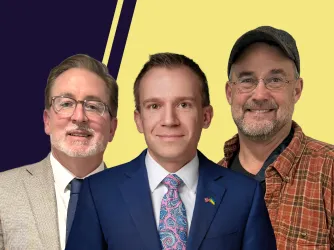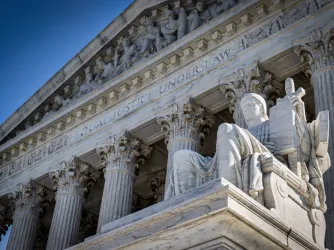Table of Contents
Bye-bye blacklist: Harvard ends attack on single-sex groups

(Marcio Jose Bastos Silva / Shutterstock.com)
BOSTON, June 30, 2020 — Four years ago, Harvard University announced a stunning attack on freedom of association when it blacklisted members of independent, single-sex, off-campus organizations from certain scholarships and campus leadership opportunities. Now, after legal setbacks and years of intense public criticism, the blacklist is no more.
Yesterday, Harvard President Lawrence Bacow announced to the Harvard community that the university will abandon the policy due to the “prevailing interpretation of federal law.” Last year, a federal judge ruled that a lawsuit brought against Harvard by fraternities and sororities could proceed with claims that the blacklist policy discriminated based on sex. Bacow said Harvard would also be withdrawing the policy in light of the “significant implications” from the Supreme Court’s decision earlier this month in Bostock v. Clayton County.
“Harvard’s effort to crush one of America’s most fundamental freedoms for its students failed in the court of public opinion and was failing in the court of law,” said FIRE Executive Director Robert Shibley. “Harvard squandered time, resources, and most of all its credibility defending its indefensible blacklist policy. While this ‘Crimson Scare’ is finally over, lasting damage has been done to many cherished men’s and women’s groups that either shut down or were muscled into changing their policies against their wishes.”
Harvard’s blacklist policy, ostensibly enacted to foster “inclusion” and “address deeply rooted gender issues,” in reality gutted students’ right to free association. Students found to have joined a single-sex social organization were forbidden from receiving Harvard Fellowships as well as Rhodes and Marshall scholarships, and banned from attaining leadership positions in recognized campus organizations or on athletic teams. The policy ignored the fact that sororities, fraternities, and Harvard-specific “final clubs” are completely independent and receive no university benefits.
The Foundation for Individual Rights in Education has been vocal in its opposition to the policy ever since it was first announced on May 6, 2016: The blacklist policy, which officially went into effect in 2018, repeatedly landed Harvard on FIRE’s “Worst Colleges for Free Speech” list. In addition, FIRE staff testified against the policy in Congress, took out full page advertisements in the student newspaper, and detailed in numerous media appearances and articles how the policy was an affront to student rights and a continuation of Harvard’s longstanding, worrisome tradition of violating the associational rights of disfavored campus groups.
FIRE VIDEO: Harvard Faculty, Students, Alumni Condemn Social Club Blacklist
All along, the policy, and the official messaging surrounding it, was rife with double-standards and other shenanigans. At one point, the policy’s architect, Dean of Harvard College Rakesh Khurana, appointed himself to lead the policy’s oversight committee and, when the policy received only seven votes from the 27-member committee, Khurana decided to implement the policy anyway. There was also the snuffing out of an early faculty motion opposing the policy, an exemption for student newspaper The Harvard Crimson, and even a hush-hush suggestion to a single-sex female club that they could remain so — as long as they lied about being single-sex.
“Although Harvard implemented this policy under intense secrecy, it’s no secret that other universities look to Harvard as an example,” said Ryne Weiss, FIRE executive assistant and chief research officer to the president. “Our sincere hope is that other universities will look to Harvard’s abject failure to implement this misguided policy, and think twice before launching a similar attack on their students’ fundamental rights.”
The Foundation for Individual Rights in Education is a nonpartisan, nonprofit organization dedicated to defending and sustaining the individual rights of students and faculty members at America’s colleges and universities. These rights include freedom of speech, freedom of association, due process, legal equality, religious liberty, and sanctity of conscience — the essential qualities of liberty.
CONTACT:
Daniel Burnett, Assistant Director of Communications, FIRE: 215-717-3473; media@thefire.org
Recent Articles
Get the latest free speech news and analysis from FIRE.

Free speech in Trump 2.0
Podcast

The federal charges against Don Lemon raise serious concerns for press freedom

The American people fact-checked their government
